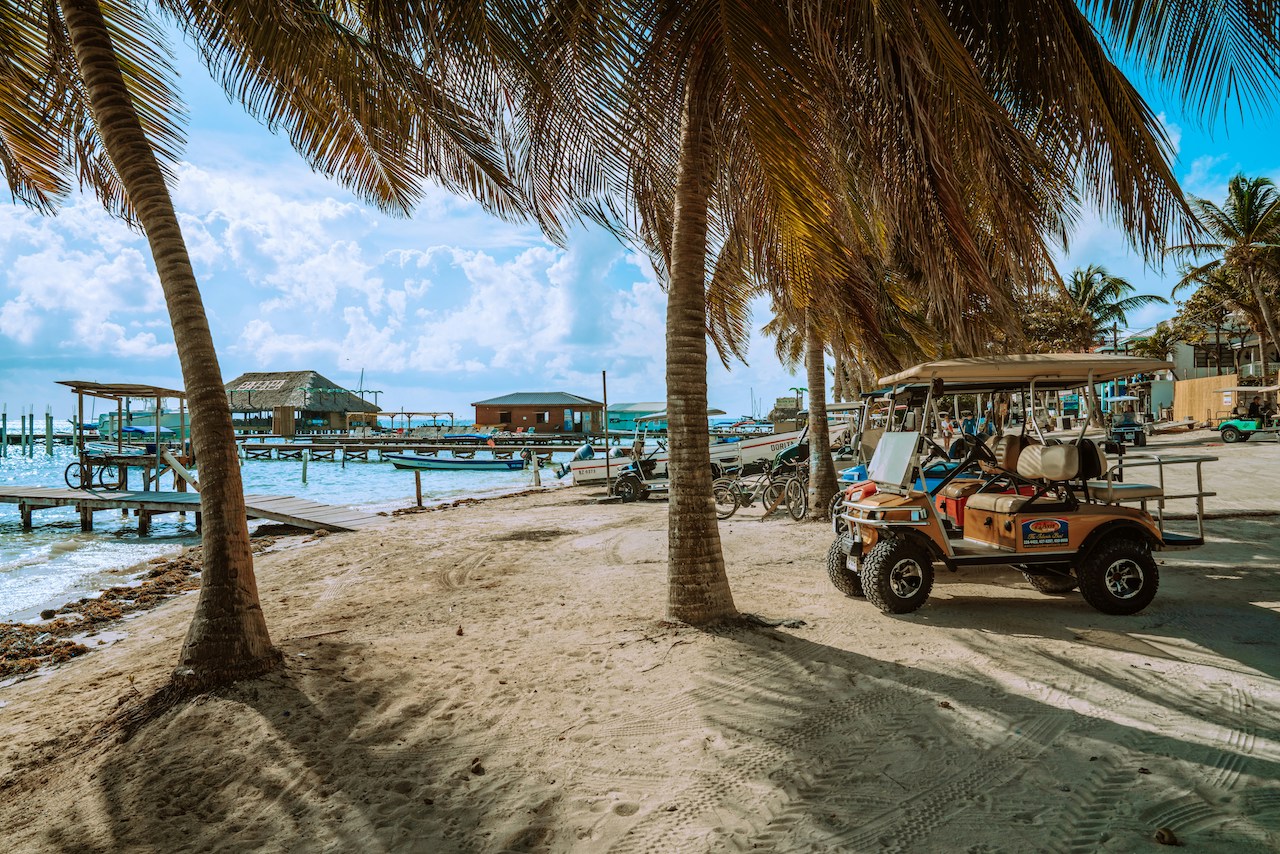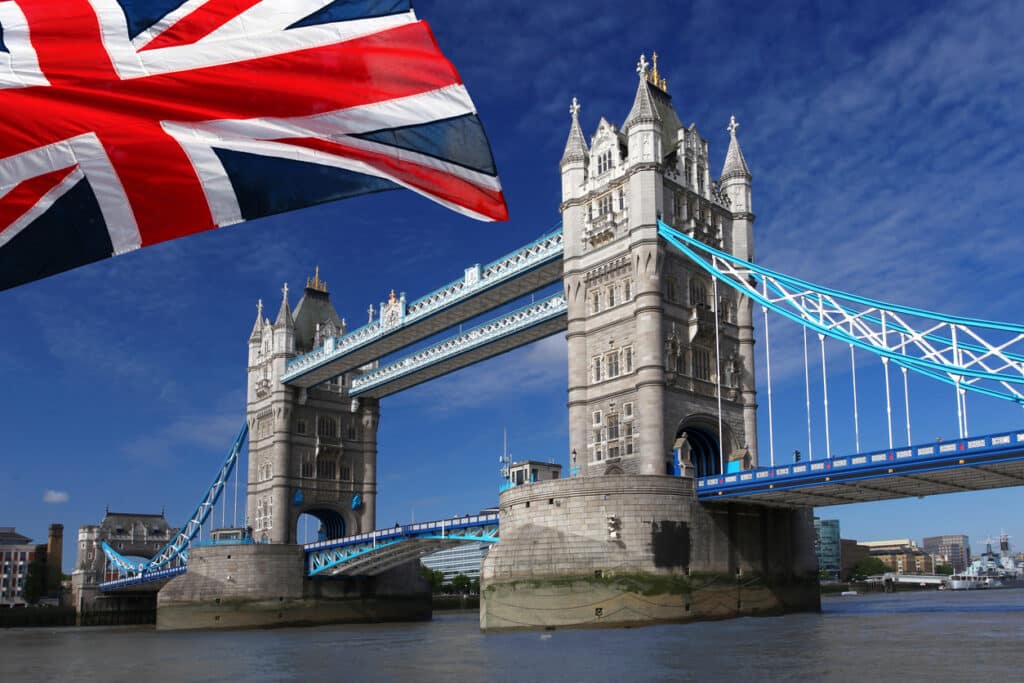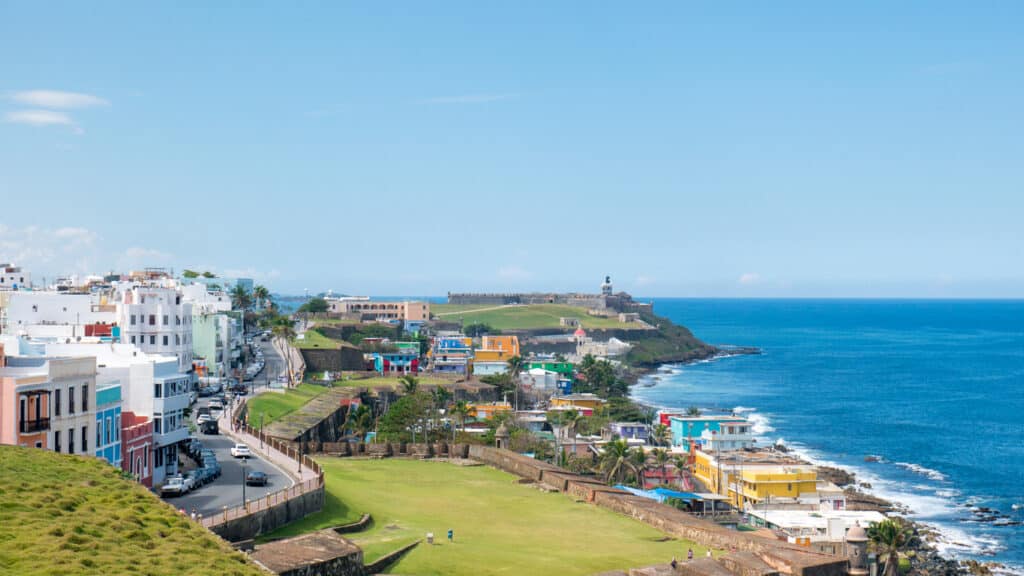Belize continues to attract Americans seeking a tropical lifestyle, thanks to its English-speaking environment, affordable living, and natural beauty. However, staying informed about recent developments is crucial for a smooth experience. This guide covers essential updates for Americans living in Belize in 2025, including residency programs, tax obligations, healthcare, and safety considerations.
Snapshot of expat life in Belize
- Primary tax forms: Form 1040 (U.S.); BTS203 – Income Tax Return for Employees (Belize)
- Tax year: January 1 – December 31
- Tax deadline: March 31 (Belize); June 15 (U.S., with automatic extension for expats)
- Currency: Belize Dollar (BZD)
- Population: Approximately 410,000
- Number of Americans living in Belize: Approximately 5,000
- Capital city: Belmopan
- Primary language: English
- Tax treaty: No
- Totalization agreement: No
Americans living in Belize: Visa types
For Americans seeking permanent residency in Belize, there are two primary pathways: the Permanent Residency Program and the Qualified Retired Persons (QRP) Program.
Permanent Residency Program
Who it’s for: Individuals who have legally resided in Belize for at least one continuous year and intend to make Belize their permanent home.
Overview: This program allows individuals to live and work in Belize indefinitely without the need for a work permit. After five years as a permanent resident, one becomes eligible to apply for Belizean citizenship.
Requirements:
- Residency: Must have legally resided in Belize for a minimum of one year, with absences not exceeding 14 consecutive days during that period.
- Financial stability: Demonstrate the ability to support oneself financially.
- Health and character: Provide a clean police record and undergo a medical examination.
- Application process: Submit the residency application to the Belize Immigration Department, along with the required fees and supporting documents.
Qualified Retired Persons (QRP) Program
Who it’s for: Individuals aged 40 and above who have a consistent monthly income from sources outside Belize.
Overview: The QRP Program is designed to attract retirees by offering benefits such as tax exemptions and duty-free importation of personal goods. Participants are required to spend at least 30 consecutive days in Belize each year to maintain their status.
Requirements:
- Age: Applicants must be at least 40 years old.
- Income: Demonstrate a monthly income of at least $2,000 from a pension, annuity, or other acceptable sources.
- Financial commitment: Agree to deposit the annual income ($24,000) into a Belizean financial institution.
- Health and character: Provide a clean police record and a medical certificate confirming good health.
- Application process: Apply through the Belize Tourism Board, submitting the necessary documentation and fees.
Both programs offer viable routes to establishing permanent residency in Belize, each with its own set of benefits and obligations.
How to apply for a Belize visa as a U.S. citizen
Applying for permanent residency or the Qualified Retired Persons (QRP) Program in Belize involves several clear steps. Here’s what you need to do:
1. Choose your pathway
Decide whether you’ll apply for the Permanent Residency Program or the QRP Program, based on your age, residency status, and income.
2. Gather your documents
Collect the required documents, which typically include:
- A valid U.S. passport
- Proof of financial stability or retirement income
- Police background check from the U.S. and Belize
- Medical certificate
- Passport-sized photos
3. Complete the application
Fill out the relevant application form:
- Permanent Residency: Submit to the Belize Immigration Department
- QRP: Apply through the Belize Tourism Board
4. Pay the fees
Each program has specific application and processing fees. Be sure to confirm the current amounts and pay as directed.
5. Submit your application
Hand in your application and supporting documents in person at the appropriate Belizean authority.
6. Attend interviews or appointments
You may be asked to attend an interview or provide biometrics as part of the process.
7. Wait for approval
Processing times vary. Once approved, you’ll receive official confirmation of your residency status.
Healthcare options for Americans living in Belize
If you’re considering a move to Belize, understanding your healthcare choices is essential. Let’s walk through what you can expect as an American living in Belize, how the healthcare system works, what options are available, and some of the pros and cons to help you make informed decisions.
How the healthcare system works in Belize
Belize offers a mix of public and private healthcare. The country’s public system provides basic medical services at government clinics and hospitals, which are accessible to residents and citizens. While care in the public sector is generally low-cost or free, the facilities and services may be more limited than what you’re used to in the U.S.. Private clinics and hospitals, often found in larger towns and Belize City, offer a broader range of services and English-speaking staff, but at higher out-of-pocket costs.
Healthcare options for Americans living in Belize
As an American expat, you have several options for healthcare in Belize:
- Public healthcare: You can use government-run clinics and hospitals, especially after obtaining residency. Services are affordable, but specialist care and advanced procedures may be limited.
- Private healthcare: Many expats prefer private clinics and hospitals for faster service, more advanced equipment, and greater comfort. These facilities usually require direct payment, as health insurance coverage is less common.
- International health insurance: Many expats choose to maintain international health insurance, which covers treatment in Belize and may allow for medical evacuation to the U.S. or elsewhere for complex care.
- Travel to neighboring countries: Some expats travel to Mexico or Guatemala for specialized procedures, where private healthcare can be both higher quality and more affordable.
Pros and cons to healthcare for American expats living in Belize
Pros:
- Low cost of basic medical services in public facilities
- English is widely spoken among healthcare professionals
- Access to private healthcare for higher-quality services
Cons:
- Limited availability of specialized care and advanced treatments
- Rural areas may have fewer facilities and medical professionals
- Out-of-pocket payments are often required for private care
- Emergency medical evacuation may be necessary for serious conditions
By understanding these factors, you can plan ahead and make sure you’re covered for both routine and unexpected medical needs while living in Belize.
Cost of living for American expats living in Belize
Understanding the cost of living is key when planning your move to Belize. Many Americans find that their dollars stretch further here, but it’s important to look at the details so you can budget wisely and avoid surprises. Below, we compare the typical costs in Belize and the US for some everyday essentials.
| Expense Category | Belize (USD, monthly average) | United States (USD, monthly average) | Notes & Considerations |
| Groceries | $200–$350 | $400–$800 | Imported items and specialty foods may cost more in Belize. |
| Housing (rent) | $400–$900 (1-bed in city) | $1,200–$2,000 (1-bed in city) | Beachfront or expat hotspots can drive prices higher in Belize. |
| Transport | $40–$80 (public transport) | $70–$120 (public transport) | Gas is often pricier in Belize; car imports can be expensive. |
| Phone plan | $25–$40 (basic plan) | $50–$80 (basic plan) | Internet can be slower and less reliable in rural Belize. |
These are estimated averages and can vary widely depending on your lifestyle and location within Belize.
Pros and cons of the cost of living in Belize for American expats
Pros:
- Many everyday expenses (like rent and local groceries) are significantly lower than in most U.S. cities.
- Simple lifestyle options make it easier to live well on a modest budget.
- Affordable domestic help and services are widely available.
Cons:
- Imported goods, electronics, and vehicles can cost much more than in the U.S. due to import duties.
- Healthier or specialty foods may be limited or pricier.
- Electricity and the internet are often more expensive and less reliable.
- Wages are lower, so income from local employment may not match U.S. standards.
We know that adjusting to new prices and shopping habits can be part of the adventure—and sometimes a challenge. By planning ahead and keeping these comparisons in mind, you’ll be better prepared to make the most of your new life in Belize.
Where do American expats tend to live in Belize?
While you’ll meet American expats throughout Belize, certain locations attract the most newcomers:
- Ambergris Caye: This popular island is often considered the heart of the expat community. San Pedro town offers a lively social scene, plenty of amenities, and easy access to the Caribbean Sea.
- Caye Caulker: For a more laid-back, budget-friendly island lifestyle, many Americans choose Caye Caulker. It’s smaller and quieter than Ambergris Caye, with a close-knit feel.
- Placencia: Located on a scenic peninsula, Placencia appeals to those who love beaches and a relaxed pace. The village has a growing expat presence, great dining, and beautiful surroundings.
- Belize City and Corozal: Belize City, the largest urban hub, offers more urban conveniences and proximity to international travel. Corozal, near the Mexican border, draws retirees and those seeking affordable living with easy access to both Belize and Mexico.
Tax implications for Americans living in Belize
Navigating your tax responsibilities as an American living in Belize can feel overwhelming, but you’re not alone. Many expats share the same questions: “Do I still need to file with the IRS?”, “How do Belizean taxes work?”, and “What about my bank accounts back home?” Let’s break down the essentials so you can feel confident and prepared.
American expats’ tax obligations
No matter where you live, if you’re a U.S. citizen or green card holder, you’re still required to file an annual federal tax return with the IRS. This rule applies even if you never set foot in the States during the year. Many expats are surprised by this! The good news: there are specific IRS provisions designed to prevent double taxation (more on those below), but you can’t skip filing just because you’re abroad.
- Who must file? Most Americans abroad who meet the minimum income thresholds (which change each year—check the IRS website for updates).
- Which forms? Typically, Form 1040, plus additional forms for foreign income or assets.
Belizean taxes
As an American living in Belize, you’ll want to understand how local taxes apply to you. Belize has a unique system:
- Resident vs. non-resident: If you spend 183 days or more in Belize in a year, you’re generally considered a tax resident.
- Income tax: Belize taxes income earned within the country, but does not tax most foreign-sourced income. For example, if you work for a Belizean employer, that income is taxable in Belize; if your income comes from the U.S., it may not be.
- Rates: The first BZD $26,000 of local income is typically tax-free; income above that is taxed at a flat rate of 25%.
It’s smart to consult a local tax expert to make sure you’re fully compliant, especially if you have complex financial arrangements.
Foreign Earned Income Exclusion (FEIE)
The Foreign Earned Income Exclusion can be a game-changer for many expats. It lets you exclude a certain amount of your foreign-earned income from U.S. taxes—up to $120,000 for the 2023 tax year (this amount is adjusted annually).
- Who qualifies? You must pass either the Physical Presence Test (330 days outside the U.S. in a 12-month period) or the Bona Fide Residence Test (prove you’ve made a home abroad for a full tax year).
- How to claim? You’ll use IRS Form 2555 when you file.
This exclusion only applies to income you earn from working—wages, salaries, or self-employment—not investment income, pensions, or rental income.
Foreign Tax Credit (FTC)
If you pay income taxes to Belize on income that’s also taxable in the U.S., the Foreign Tax Credit helps prevent double taxation. You can claim a dollar-for-dollar credit on your U.S. taxes for income taxes paid to Belize.
- Which form? IRS Form 1116.
- When is it useful? If you earn income in Belize and pay local tax on it, but your income exceeds the FEIE limit, or if you don’t qualify for the FEIE.
Tax treaty
Currently, there is no income tax treaty between the United States and Belize. This means you don’t get any special treaty benefits or exemptions—your primary tools are the Foreign Earned Income Exclusion and Foreign Tax Credit.
Why does this matter? Some countries have treaties that clarify which country gets to tax certain types of income, but with Belize, you’ll need to carefully manage your filings to avoid double taxation.
Reporting foreign bank accounts
If you have bank or financial accounts in Belize (or anywhere outside the U.S.) and the combined value exceeds $10,000 at any point during the year, you must file an FBAR (Foreign Bank Account Report), officially called FinCEN Form 114.
- When is it due? The FBAR is filed electronically, separate from your tax return, and is due on April 15 with an automatic extension to October 15.
- Why does this matter? The U.S. is serious about tracking foreign accounts—failure to file can result in hefty penalties.
You may also need to file IRS Form 8938 if your foreign assets exceed certain thresholds.
Social Security
Living in Belize does not affect your eligibility to receive U.S. Social Security benefits. You can have them deposited directly into a bank account in Belize or the U.S.
- Taxation: Belize does not tax U.S. Social Security income, and the U.S. generally taxes it the same way as if you lived stateside.
- Medicare: You cannot use Medicare benefits in Belize, so you’ll need to plan for private health insurance.
If you’re ready to take the next step, don’t wait—start planning today. Whether you need expert advice or hands-on support, reach out to our team and ensure you’re making informed decisions every step of the way. Take charge of your future now!
Frequently Asked Questions
-
Do Americans living in Belize still have to file U.S. taxes?
Yes, as Americans living in Belize, you must file an annual U.S. tax return if you meet the minimum income threshold, even if you earn all your income abroad. The IRS requires all U.S. citizens and green card holders to report their worldwide income.
-
Are foreign bank accounts in Belize reportable to the IRS?
If the total value of your foreign financial accounts, including those in Belize, exceeds $10,000 at any time during the year, you must file an FBAR (Foreign Bank Account Report). This rule applies whether your accounts are in Belizean banks, investment firms, or any financial institution outside the U.S.
-
How does Belize tax income for Americans living in Belize?
Belize taxes you on income earned within the country if you are a tax resident (generally, if you spend 183 days or more in Belize per year). Foreign-sourced income, such as U.S. retirement payments or remote work for a U.S. employer, is usually not taxed by Belize. However, local income above BZD $26,000 is taxed at a flat rate of 25%.
-
Can Americans living in Belize claim the Foreign Earned Income Exclusion?
Absolutely. If you qualify—either by living in Belize full-time (Bona Fide Residence Test) or spending at least 330 days outside the U.S. (Physical Presence Test)—you can use the Foreign Earned Income Exclusion to reduce your U.S. tax bill on earned income from Belize or elsewhere, up to the IRS limit.
-
Is U.S. Social Security income taxed in Belize for American expats?
No, Belize does not tax U.S. Social Security benefits for Americans living in Belize. You can have your Social Security payments deposited directly into your Belizean or U.S. bank account, and the U.S. taxes your benefits just as if you lived in America.

 Connect on LinkedIn
Connect on LinkedIn

